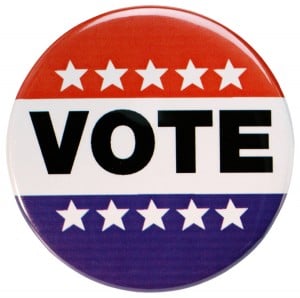 During this political season in the US, I’ve taken the opportunity to do some reading on American evangelicals and politics. I have four recent books that I would like to recommend to you that I thought were particularly interesting, in many cases thought provoking and at times practically useful.
During this political season in the US, I’ve taken the opportunity to do some reading on American evangelicals and politics. I have four recent books that I would like to recommend to you that I thought were particularly interesting, in many cases thought provoking and at times practically useful.
As a whole these resources reveal that there is a new approach to politics and the civic life that younger evangelicals particularly are taking, and this in many ways is a direct response to the previous generation’s Cultural Wars. There seems to be an evident fatigue among many young evangelicals with the approach to politics that characterized the previous generations of leaders. The grand hopes for cultural change of movements like the Moral Majority and Focus on the Family to the view of all have not been realized. And although it could be argued that these and groups like them have achieved some of their aims, the grasp for political power central to their approach has definitely had negative consequences. It is the opinion of many young evangelicals, myself included (although I’m not very young anymore), that politically speaking this previous approach has done more harm than good. By grasping at political power, the attempts at cultural change have been tainted by that very power.
Nevertheless, what is most important to emphasize on this election day, is that God’s people are to work for the common good of any society of which they are a part. Individual Christians and Churches are to work for “the peace and prosperity of the city” (Jer 29:7). Of course, there will be disagreements between individual believers and Christian traditions about how best to do this and how the “common good” is defined. Still because Christians have a call to be “salt” and “light”, Christians should be politically and civically engaged.
Contrary to popular thinking though, emerging adult Christians are only marginally engaged in the political and civic arenas of life and in many cases this is for good reason – disempowerment, ineptitude of political intuitions, scandal, etc. Thus, those of us who have influence among emerging adult Christians, should work hard to challenge and equip young Christians love God and neighbor through involvement in the political and civic sphere.
So for the books:
Jonathan Merritt, A Faith of Our Own: Following Jesus Beyond the Culture Wars (Faith Words, 2012). Merrritt is the son of a well known Southern Baptist pastor and former president of the SBC, James Merritt. One of my mentors as a young Christian served at his father’s church in Snellville, GA. I particularly resonated with this book as one who also attended Liberty University and sat under the ministry of Jerry Falwell.
Amy E. Black, Honoring God in Red or Blue: Approaching Politics with Humility, Grace, and Reason (Moody 2012). Black is a political science professor at Wheaton College. This book has provides a comprehensive yet accessible discussion of government and a Christian’s relationship to it. It is focused like Merritt’s exclusively on the US political scene.
Kenneth J. Collins, Power, Politics and the Fragmentation of Evangelicalism: From the Scopes Trial to the Obama Administration (IVP 2012). Collins is Professor of Historical Theology and Wesley Studies at Asbury Theological Seminary. His book surveys the relationship Evangelicals have had to political power over the last century. Collins tells an interesting story and draws insightful commentary. He points the way forward for Evangelicals.
Christian Smith, Lost in Transition: The Dark Side of Emerging Adulthood (Oxford 2011). Smith is the recognized authority on the age group 18-25, called by sociologists today Emerging Adults. While not about Evangelicals particularly his chapter on political and civic disengagement is distressing. In the fifth chapter of the book, Smith deals with the nearly complete disengagement of emerging adults from politics and civic life. According to his research only 6% of emerging adults are significantly involved in politics and the civic life.











